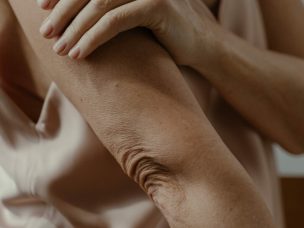Hives
Ziziphus Jujube Syrup in Treatment of Antihistamine-Resistant Chronic Urticaria
A randomized controlled trial reports that Ziziphus jujube syrup was an effective add-on treatment for a group of patients with chronic spontaneous urticaria resistant to standard second-generation H1 antihistamines. Chronic spontaneous urticaria (CSU) is an intermittent condition characterized by urticaria and/or angioedema lasting for a minimum of 6 weeks. The first-line management of CSU includes...
Bepotastine Besilate versus Levocetirizine in Chronic Spontaneous Urticaria Treatment
Bepotastine besilate was found to have comparatively greater efficacy than levocetirizine for reducing mean urticaria activity score and improving quality of life in chronic spontaneous urticaria patients in an interventional study. Chronic spontaneous urticaria (CSU) affects approximately 15–20% of the population at least once during their lifetime. Antihistamines comprise the cornerstone treatment approach for this...
Omalizumab in Patients With Chronic Spontaneous Urticaria
A new prospective study reports that omalizumab effectively manages hives in patients with chronic urticaria. Chronic urticaria impacts 0.5–1% of adults and is marked by the appearance of itchy hives with or without angioedema lasting at least 6 weeks. Physical stimuli such as pressure, cold, heat, and vibration induce hives in 20% of patients, categorized...
Expert Consensus on Diagnostic Criteria for Urticarial Vasculitis and Chronic Spontaneous Urticaria
A recent Delphi survey facilitated the establishment of diagnostic criteria and differential diagnoses between urticarial vasculitis and chronic spontaneous urticaria patients presenting with recurring wheals. Urticarial vasculitis (UV) is characterized by long-lasting wheals with or without angioedema and the histopathologic finding of leukocytoclastic vasculitis. Distinguishing UV from chronic spontaneous urticaria (CSU) can be challenging due...
Benralizumab in Patients With Chronic Spontaneous Urticaria
In the phase 2b ARROYO trial, although blood eosinophils were almost completely depleted, benralizumab treatment did not show any therapeutic advantage compared to a placebo for the treatment of chronic spontaneous urticaria. Chronic spontaneous urticaria (CSU) involves a complex interplay of various cell types and molecular mechanisms, with mast cells traditionally considered the primary drivers....
Systemic Microcirculatory Changes in Chronic Spontaneous Urticaria
Chronic spontaneous urticaria causes systemic microcirculatory changes, which VEGF may partly drive, according to the results of a cross-sectional, cohort study. Chronic spontaneous urticaria (CSU) is characterized by recurrent wheals and angioedema resulting from the activation of skin mast cells, often driven by autoimmunity through IgE and IgG autoantibodies. In this context, a cross-sectional, cohort...
Remibrutinib Safety, Tolerability, and Efficacy in Chronic Spontaneous Urticaria
Long-term treatment with remibrutinib shows favorable safety and tolerability and demonstrated robust clinical efficacy in patients with chronic spontaneous urticaria, according to the results of a phase 2b trial. Chronic spontaneous urticaria (CSU) is a condition in which wheals (hives) and/or angioedema occur persistently for longer than 6 weeks, greatly affecting the quality of life...
Role of Different Biomarkers in Chronic Spontaneous Urticaria
Interleukin-9 and apolipoprotein A-IV could serve as new biomarkers for predicting the severity of urticaria, according to the results of a recent observational study. Chronic spontaneous urticaria (CSU) is a condition characterized by the presence of wheals, with or without angioedema, that occur daily or almost daily for more than 6 weeks. Previous studies have...
Managing Resistant Hives Effectively Without Monoclonal Antibodies
A recent randomized controlled trial shows that patients who do not respond to initial therapy with nonsedating H1-antihistamines might respond to these drugs when given at four-fold higher dosages. Urticaria is a common dermatological condition that can be acute or chronic. Chronic urticaria (CU) persists for more than 6 weeks and requires frequent healthcare visits,...
More Medical News














